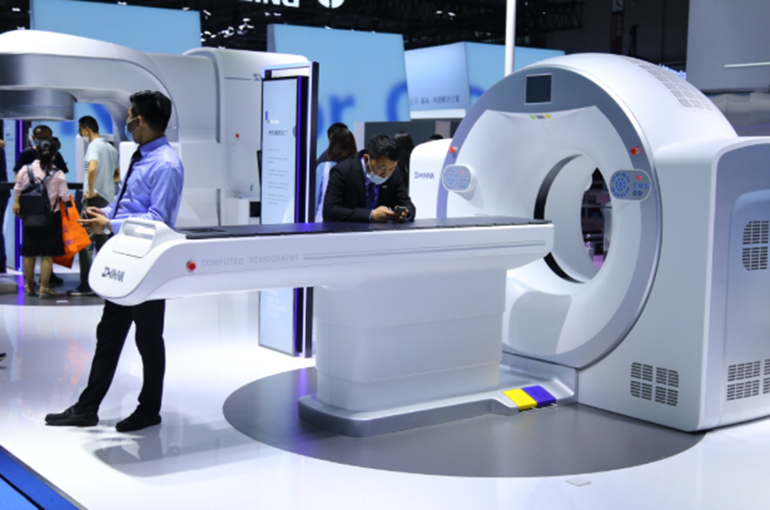 Global Medtech Giants GE, Philips, Siemens Double Down on China Despite Sales Slowdown
Global Medtech Giants GE, Philips, Siemens Double Down on China Despite Sales Slowdown(Yicai) July 11 -- GE Healthcare, Philips and Siemens Healthineers are stepping up localization efforts in China as they look to streamline supply chains and cut costs. Despite recent declines in performance, the so-called “GPS” trio of global medical device behemoths continue to see China as a market with strong long-term growth potential.
The United States remains the world’s largest healthcare market and is the three firms’ biggest single market. Although these companies have manufacturing bases in both the US and Europe, they still rely heavily on transatlantic shipments of both parts and finished products. That makes them particularly vulnerable to tariffs disputes. So far, the EU and US have not reached an agreement on tariffs. While the full impact of trade tensions remains unclear, the outlook for global operations has become more uncertain.
“Globalization has been forced into regionalization,” Liu Ling, president of Philips China, said in an interview with Yicai. “For example, when we talk about supplying North America, we have to see how this trend unfolds. China remains one of the most important manufacturing bases, and over 90% of our products sold in China are manufactured locally.”
Even so, the Chinese market has become more challenging for the three medtech giants. In the fourth quarter last year, Philips reported a double-digit drop in revenue in China. Even though demand for equipment upgrades had started to boost its shipments in the country, selling prices remained weak. The firm expects revenue in China to decline by the mid- to high-single digits this year.
GE Healthcare also reported a 15 percent slump in its China revenue in 2024 from the year before, making China one of the few markets where the company posted negative growth. And Erlangen-based Siemens Healthineers reported a 14 percent fall in China sales in the second quarter of its 2024 fiscal year from a year earlier.
“All three of us are facing the same issues, namely fiercer competition, pricing pressures and the impact of tariffs,” Liu said. “With new tariffs coming in, I expect competition to intensify and the challenges will persist.”
Sustained Opportunities
Still, China’s massive and aging population, rising purchasing power and the growing prevalence of chronic conditions like cardiovascular disease and obesity demand rapid and timely responses from the medical industry. This presents strong, sustained market opportunities for companies like Amsterdam-based Philips and GE Healthcare.
“This is the right moment to push ahead with localization, integrate industrial chains and sharpen our cost advantage,” said Liu. “We’re actively looking for ecosystem partners and will soon bring everyone together.”
GE Healthcare shares a similar outlook. “Localization doesn’t just mean making equipment in China, it means localizing every single component,” Zhang Yihao said at the 2024 China International Import Expo when he was president of GE Healthcare China. “That helps make our supply chain more resilient, improves quality, reduces costs and drives innovation.”
GE Healthcare has been putting its strategy into action. Last year, its Chengdu factory began shipping cyclotrons and it set up its China ultrasound headquarters in Wuxi. In the second quarter of that year, it invested CNY380 million (USD53 million) in Shanghai to bring in new products and build new production lines. Then in the third quarter, it committed a CNY500 million (USD69.7 million) investment in Tianjin to build the Chicago-based company’s MRI headquarters for the eastern hemisphere.
“I haven’t seen any of our competitors walk away from China nor say it’s no longer strategic,” Liu added. “For Philips, there’s no reason we can’t manufacture everything here. But it takes time. You need to train people and build a full ecosystem.”
Editor: Kim Taylor